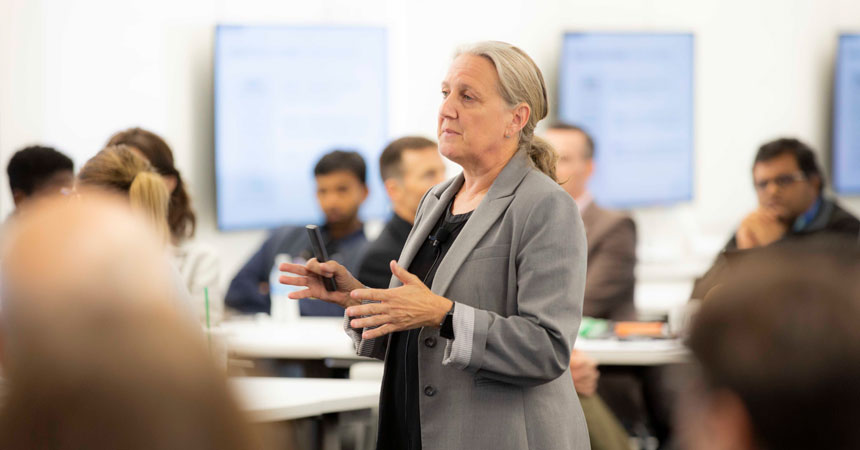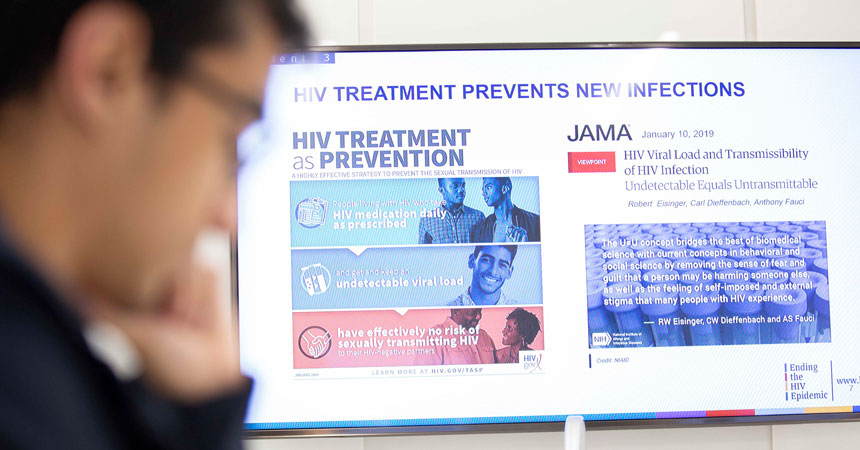Plan to end new HIV infections nationwide includes focus on Tarrant County
By Diane Smith
One day soon, public buses and billboards across Fort Worth and Tarrant County could read: “Did you get your PrEP?”
It’s a public health message intended to get more people who are diagnosed with HIV on life-saving medicine while breaking down social barriers and stigma.
Texas’ major urban counties have drawn national concern as they experience new HIV diagnoses. The state listed 4,391 new diagnoses in 2017.
Now, Tarrant County is part of a multi-phase federal plan to end new HIV infections in 10 years.
“Tarrant County has one of the highest rates of new infections for HIV in the United States so when the federal government talks about ending HIV, it is significant here because it is a local issue,” said David Mansdoerfer, Special Assistant to UNTHSC President Michael Williams.
The federal plan, which was announced in President Donald Trump’s State of the Union, aims to get the PrEP medication in the hands of people who need it. Trump has requested $291 million in the upcoming 2020 budget for the plan.
Details about the plan were the focus of an in-depth presentation by Dr. Tammy R. Beckham, Director of the Office of Infectious Disease and HIV/AIDS Policy for the U.S. Department of Health and Human Services.
Dr. Beckham’s presentation was the subject of a Health Care Showcase titled: “Ending HIV: Understanding the Federal Plan.”
It was the second Health Care Showcase event hosted at UNTHSC.
Tarrant County is among 48 counties the federal government has identified in the plan aimed at eliminating new HIV infections. Tarrant County is among five major urban Texas counties targeted for the program. Bexar, Dallas, Harris and Travis are also included in the plan.
Also included in the plan are Washington, D.C, San Juan, Puerto Rico and seven states that have a “substantial rural HIV burden,” according to the U.S. Department of Health and Human Services.
“This initiative is very much a community-based initiative,” Dr. Beckham said. “We are working strongly with communities to develop their plans because they know what is best for their communities.”
Dr. Beckham said personal finances, lack of transportation and homelessness serve as barriers to getting treatment.
Mansdoerfer said the event helped link different members of the community together to tackle the issue.
“Having a conversation like this that brings the county, the city, local providers, as well as nonprofit organizations, is extremely important to make sure that everyone is at the table so we can do this effectively and efficiently,” he said.








Social media